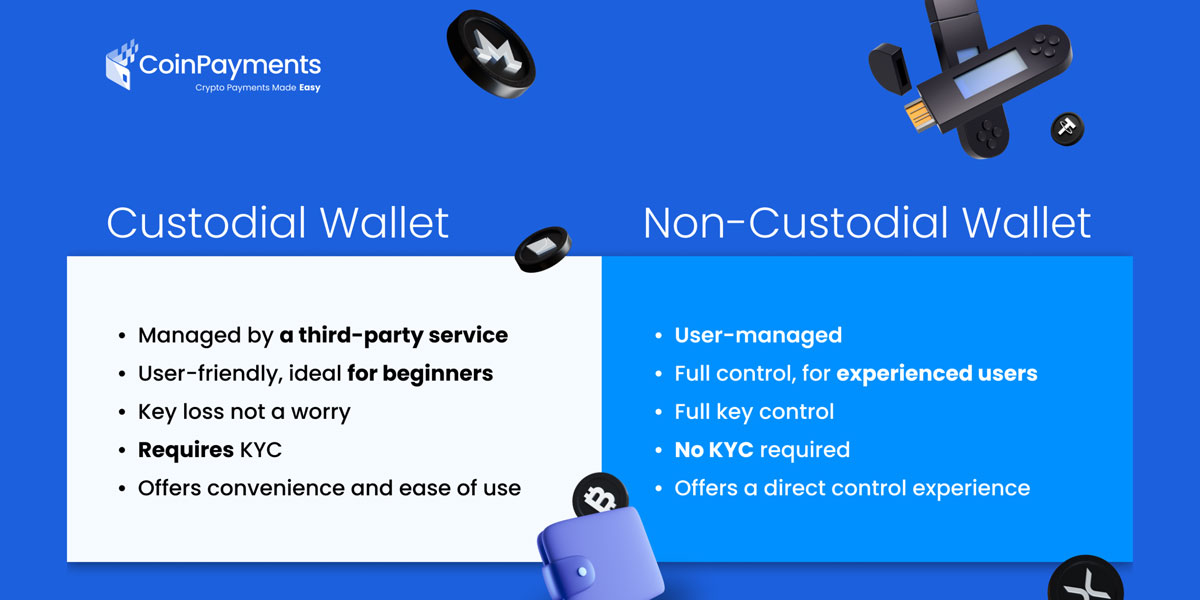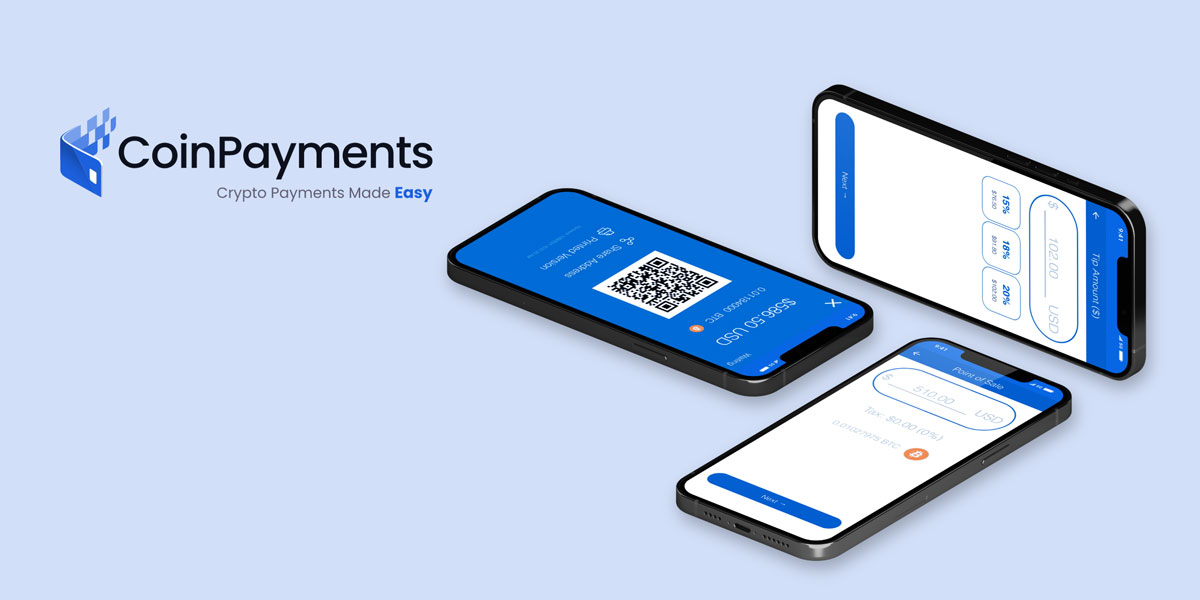The world of cryptocurrency has exploded recently. Just a few years ago, we had a handful of digital coins, and now, in 2023, we’re looking at over 20,000 different types of cryptocurrencies!
With this kind of growth, having a secure place to manage your digital assets is more important than ever. That’s where a crypto wallet comes in.
A crypto wallet is not just a digital piggy bank; it’s your personal financial hub in the crypto universe. It allows you to send, receive and manage your cryptocurrencies on the blockchain network. But not all of them are created equal and have different crypto wallet features. Some offer robust user interfaces, while others focus on top-notch security measures like two-factor authentication and QR code functionality.
This guide will explore the essential features and functions that make a crypto wallet dependable and user-friendly.
What are Crypto Wallets?
What exactly is a crypto wallet? You might think it’s a digital version of your leather wallet, but a bit more complex. A crypto wallet is your personal gateway to the blockchain network, which is a decentralized database.
If you own some crypto assets, like ETH, for example, your ETH doesn’t actually sit in your smartphone or computer; that would be way too risky. Instead, it exists on the blockchain, and your crypto wallet serves as your personal connector or access point to that blockchain.
Here’s How it Works
Your wallet has a public address and a private key. The public address is like your email address or bank account number; you share it with people who want to send you ETH. It’s visible to everyone on the blockchain network, but don’t worry, it doesn’t reveal your identity.
On the other hand, your private key is super confidential. Think of it as the password to your email account, which you wouldn’t think of sharing with anyone. This private key allows you to authorize transactions, whether sending ETH to someone else or swapping it for another cryptocurrency.
Now, let’s talk about seed phrases. When you first set up your crypto wallet, it will generate a seed phrase for you. This is a set of 12 or 24 simple words, like “corn,” “table,” or “apple.” Write these down and keep them somewhere safe. If you ever forget your wallet’s password, this seed phrase is your lifeline to regain access.
So, in a nutshell, a cryptocurrency wallet is more than just a place to “store” your cryptocurrencies. It’s a secure tool that manages your public and private keys, enables you to execute crypto transactions, and even acts as a backup system with seed phrases.
Types of Crypto Wallets You Can Find

There are different types of cryptocurrency wallets, and they can be categorized under custodial vs. non-custodial wallets and hardware vs. software wallets.
First up, custodial and non-custodial wallets. A custodial wallet is like having a bank account for your crypto. The service provider protects your private keys, making it easier for you, but it also means you must trust them to keep your assets safe.
On the flip side, you’re in charge of your private keys and, by extension, your crypto assets in the case of a non-custodial wallet. It’s like having a safe at home; you’ve got the key, and it’s your job to keep it secure.
Now, let’s talk hardware and software wallets. Hardware wallets are physical devices, sometimes like a super-secure USB drive, where your private keys live. They’re not connected to the internet, making them a fortress against online hackers.
On the other hand, you can access software wallets on your computer, browser, or phone, like crypto wallet apps. They’re convenient and great for quick transactions, but you’ve got to be extra cautious with your online security.
So, what’s the takeaway? Different strokes for different folks. Your wallet choice will depend on your needs, whether you prioritize ease of use or ironclad security.
Importance of Cryptocurrency Wallets
Crypto wallets let you send, receive, and store your crypto assets, but many go beyond these basics.
Some crypto wallets offer a whole suite of features like swapping and staking.
And let’s not forget about dApps or decentralized applications. These are apps built on blockchain networks that you can access right from some crypto wallets.
Now, how do you actually move your crypto around? To receive funds, you’ll need what’s called a public key, which is a fancy term for an address. Just hit the “generate address” button in your wallet, and you’ve got an address you can share. To send crypto, you’ll need the recipient’s address. Pop that into the “send” field, specify the amount, and you’re ready.
A quick pro tip: always consider doing a small test transaction before sending a large amount. It’s like dipping your toes in the water before taking the plunge. Remember, a small transaction fee is usually involved, a little something for the miners who keep the blockchain network running smoothly.
What Are the Main Crypto Wallet Features?
When it comes to selecting a crypto wallet, you’re not just seeking an option to store your digital currencies securely. You’re searching for secure wallets with a seamless user interface, fortified security measures, and a suite of functionalities and features that elevate them from the rest.
So, what are the key crypto wallet features that are truly indispensable? Some crucial factors should inform your questions when selecting the right crypto wallet.
Compatibility
A top-tier crypto wallet should play well with various devices and be compatible with multiple operating systems: Android, iOS, Windows, or Linux. This ensures the wallet is accessible to as many crypto users as possible, making it a versatile choice for storing private keys and managing transactions.
Security Measures
Security isn’t just a feature for crypto wallets – it’s necessary. After all, you’re storing valuable crypto assets. To gain user confidence, crypto wallets should offer robust security measures akin to those in traditional banking apps. Some important features are:
User Authentication
With the proliferation of crypto wallet apps and exchanges, vulnerabilities are bound to exist. That’s why comprehensive user authentication frameworks are non-negotiable.
Two-factor authentication (2FA) or multi-factor authentication is essential for securing your wallet against unauthorized access.
Automated Logout
Let’s face it, we’re all human, and sometimes we forget to log out. That’s where automated logout comes in. To minimize the risk of unauthorized access, a good crypto wallet will automatically log you out after a period of inactivity. It’s an industry standard in traditional banking and should be in crypto wallets, too.
Automatic Backup and Recovery
Ever heard the horror stories of people losing access to their crypto assets? That’s a nightmare you don’t want to live. Advanced crypto wallets offer automatic backup and recovery features.
For example, Trust Wallet allows users to set up automatic backups to Google Drive or iCloud, ensuring you never lose access to your funds.
Usability
In a world where fintech sets new user experience standards, crypto wallets can’t afford to lag behind. A robust user interface is essential for a seamless user experience, meeting the rising customer expectations in financial apps.
Push Notifications
The crypto market is anything but stable. Prices can skyrocket or plummet within minutes. That’s why push notifications are a godsend for crypto wallet users. These timely updates can alert you about significant price changes, achieved price targets, or incoming payments, keeping you in the loop without having to monitor the market 24/7.
Importing Wallets and Private Keys
Flexibility is key when it comes to managing your crypto assets. A good crypto wallet should allow you to import other wallets by copying and pasting private keys easily. This feature is especially useful for those who use hardware wallets like Ledger or Trezor, adding an extra layer of security to your digital assets.
Support for Multiple Cryptocurrencies
Diversity is the spice of life, and the same goes for your crypto portfolio. A crypto wallet that supports multiple cryptocurrencies offers you the flexibility to diversify your investments. Whether you’re into Bitcoin, Ethereum, or the latest altcoins, your wallet should be able to accommodate them all.
Address Book
Frequent traders know the hassle of managing multiple wallet addresses. An address book feature simplifies this by allowing you to label and organize commonly used accounts. Not only does this save time, but it also adds an extra layer of security by reducing the risk of sending funds to the wrong address.
Up-to-date conversion Rates and Transaction Fees
In the crypto world, real-time data is crucial. Your crypto wallet should offer up-to-date conversion rates and automatically calculate transaction fees based on these rates. Some wallets even allow you to purchase crypto directly via credit card through services like MoonPay, providing a smooth entry point for crypto newbies.
Reputation and Trustworthiness
When it comes to managing your hard-earned crypto, you don’t want to take any chances. That’s why the reputation of the company behind your chosen wallet is crucial. If you choose a custodial wallet solution, look for a wallet provider that has stood the test of time and earned the trust of the crypto community.
CoinPayments, for example, has gained popularity among beginners for its user-friendly interface and solid reputation.
Additional Crypto Wallet Features to Look Out For
As mentioned, crypto wallets are not just about sending and receiving coins anymore. They’ve evolved to offer a range of additional features that cater to the diverse needs of their users. Here are more features to look out for:
NFT Support
Non-fungible tokens (NFTs) are everywhere and are new, exciting use cases of blockchain technology. A modern crypto wallet should offer dedicated support for NFTs, allowing you to seamlessly store and showcase your unique digital assets.
QR Code
In the age of convenience, a QR code scanner is a must-have crypto wallet feature. This tool lets you quickly scan public keys for transactions, eliminating the need to enter those long, complicated addresses manually. It’s a simple yet effective way to make crypto transactions faster and more secure.
In-wallet Browser (dApp Browser)
Decentralized applications (dApps) are becoming increasingly popular, and having a built-in dApp browser in your crypto wallet can make your life easier. It allows you to interact with dApps directly from your wallet, offering a more integrated and seamless user experience.
Portfolio Management
A built-in portfolio management feature can be a lifesaver. It allows you to monitor the performance of your assets in real time, all in one place, making it easier for you to make informed decisions.
Choosing the Best Crypto Wallet

To choose the right crypto wallet, you must decide what type of crypto wallet features align with your specific needs and circumstances. If you’re new to crypto, a custodial wallet like CoinPayments can offer a more convenient and user-friendly experience. On the other hand, if you prefer complete control over your assets, a non-custodial wallet would be your go-to choice.
In both the crypto universe and traditional finance, diversification is key. If you’re holding multiple digital assets, it’s wise to distribute them across multiple wallets. This strategy minimizes risk and gives you the flexibility to optimize each wallet for specific types of transactions.
Your seed phrase is the master key to your crypto assets. Losing your seed phrase means losing access to your assets forever, with zero chances of recovery.
The crypto world is not without its pitfalls. Double-check the receiver’s address, website URLs, and certificates before making any transactions. A single mistake can cost you dearly, so it’s better to be safe than sorry.
Never underestimate the power of 2FA. It adds an extra layer of security that can save you from potential disasters. Even if someone gains unauthorized access to your account, they won’t be able to withdraw your funds without passing the 2FA check.
Security should never be an afterthought when it comes to digital assets. Whether you opt for a custodial or non-custodial wallet, ensure it offers robust security features to keep your assets safe and sound.


